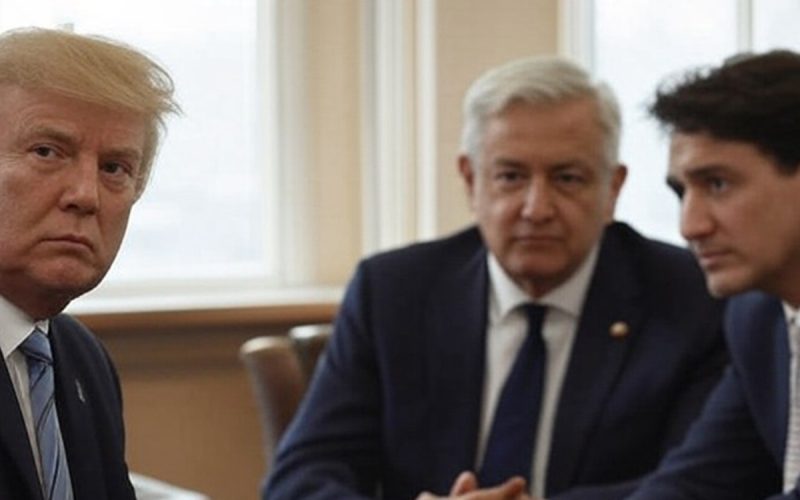In a historic display of solidarity, Mexico and Canada have banded together in response to President Donald Trump‘s aggressive tariff policies. On February 1, 2025, both countries announced their retaliatory tariffs following Trump’s executive orders that imposed a 25% tariff on goods from Mexico and Canada, with Canadian energy products slightly less at 10%. This started a new Trade War.
Mexican President Claudia Sheinbaum, alongside Canadian Prime Minister Justin Trudeau, condemned these measures in a joint statement, describing them as economic aggression that disrupts not just trade but the very fabric of North American relations. Sheinbaum has prepared to levy tariffs on a range of U.S. products, including steel, agricultural goods, and even cultural exports like Hollywood movies, aiming to hit sectors where the U.S. feels the economic pinch.
The strategy here is clear: to make the economic cost of Trump’s tariffs felt within the U.S., potentially swaying public and political opinion against such policies. Both leaders have urged their citizens to support local economies, with Trudeau advocating for buying Canadian and Sheinbaum promoting Mexican-made products.
Economists from both nations predict a challenging period ahead, with potential shortages, price hikes, and disruptions in supply chains. The auto industry, a backbone of North American trade, faces particular uncertainty, with companies like Ford and General Motors already expressing concerns over production costs and consumer prices.
This united front for upcoming trade war, has not only economic but also political ramifications. In the U.S., there’s growing bipartisan concern about the unintended consequences of these tariffs, with figures like Senator Marco Rubio questioning the wisdom of such isolationist moves. Meanwhile, in Canada and Mexico, the political landscape is rallying around their leaders, with public support for these retaliatory measures gaining momentum.
As the situation evolves, experts are watching for signs of negotiation or further escalation. With elections looming in the U.S., the political climate could either force a de-escalation or push Trump to double down on his America First policies, potentially reshaping trade relationships for years to come.





